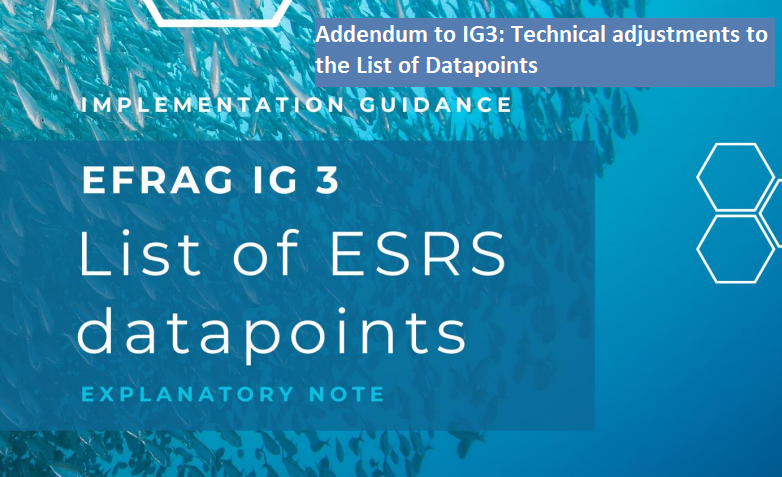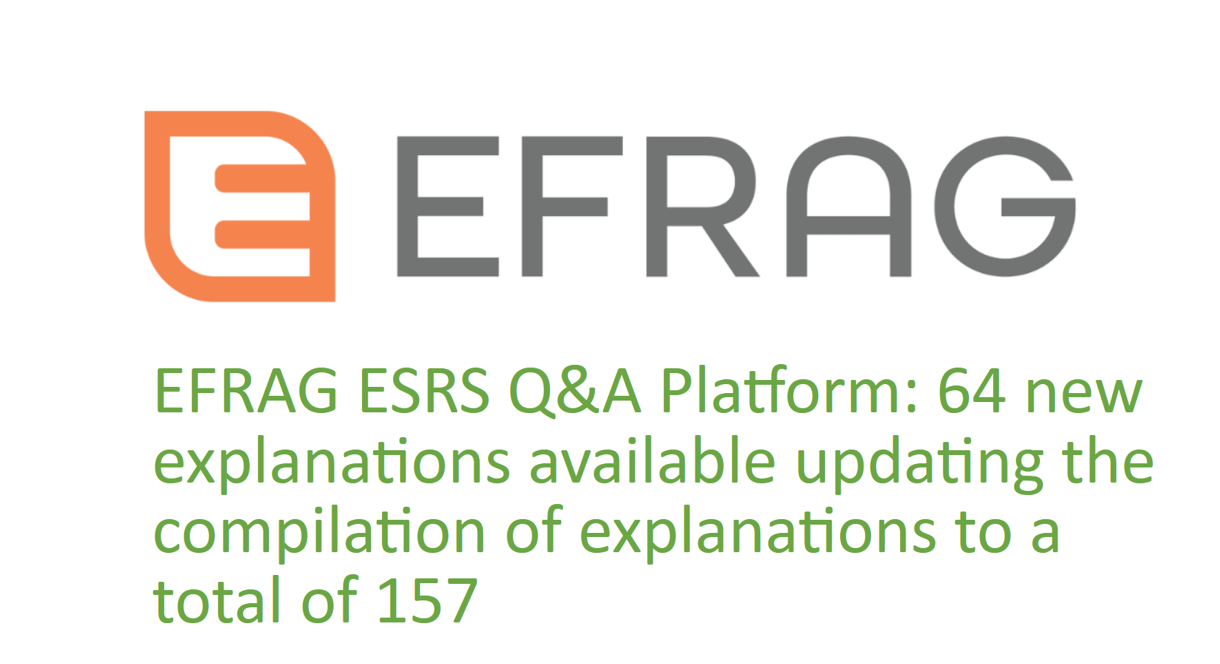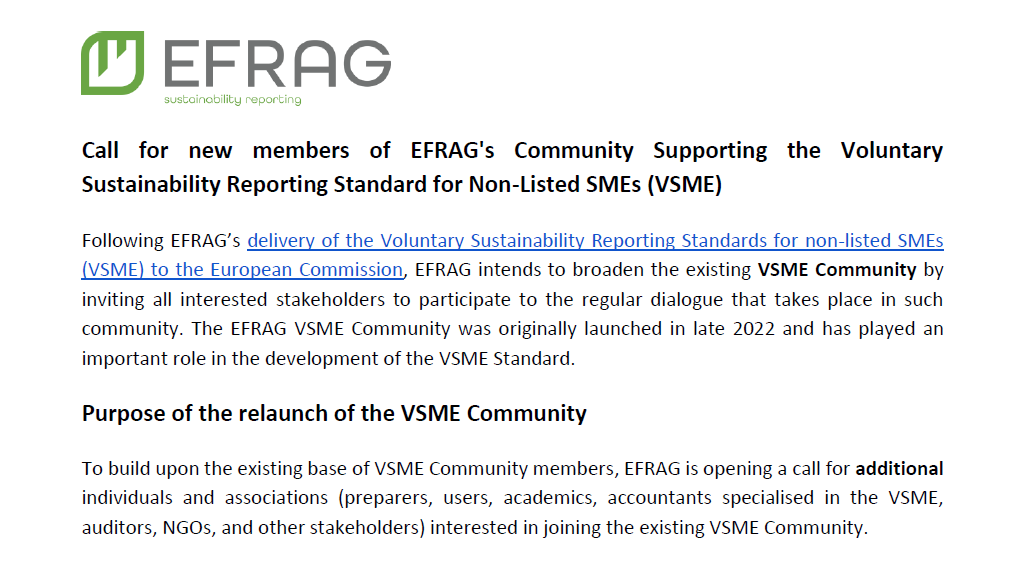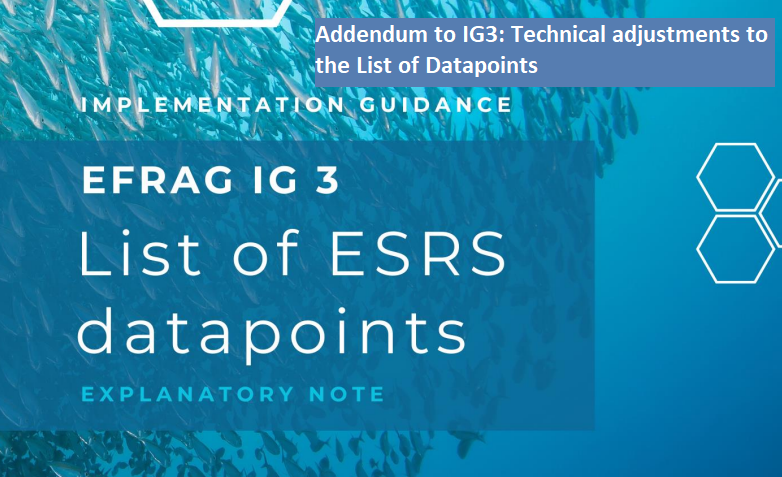EFRAG Updates ESRS Guidance: Addendum to IG 3 Released
EFRAG has published a technical addendum to its IG 3: List of ESRS Datapoints, introducing minor corrections and clarifications based on stakeholder feedback. This update enhances the guidance without requiring a full revision, ensuring it remains a practical tool for organisations preparing sustainability statements under ESRS Set 1.

EFRAG (European Financial Reporting Advisory Group) has issued a technical addendum to its IG 3: List of ESRS Datapoints. This update, published on 20 December 2024, addresses stakeholder feedback by introducing targeted clarifications and minor corrections without necessitating a full revision of the guidance.
Download the document to explore all details - Addendum to IG3: Technical adjustments to the List of Datapoints
Originally released in May 2024, the IG 3 document was designed to help organisations draft their first sustainability statements in line with ESRS (European Sustainability Reporting Standards) Set 1. Since its introduction, many organisations have adopted it as a practical resource, offering valuable feedback along the way.
Stakeholder comments, gathered primarily through EFRAG's Q&A Platform, highlighted areas needing refinement. These insights prompted EFRAG to issue this limited addendum to resolve ambiguities and errors in the initial guidance.
Key Details of the Addendum
The addendum incorporates:
- Adjustments to improve clarity and accuracy;
- Responses to stakeholder queries, as detailed in the Q&A ID columns.
The EFRAG addendum to IG 3 provides several key updates and useful points for organisations preparing their ESRS sustainability statements. The addendum includes clarifications and minor corrections based on stakeholder feedback, without necessitating a full revision. It is important to note that the IG 3 List of Datapoints should be used in conjunction with the materiality assessment process, rather than as a checklist for automatic compliance. This ensures that only relevant datapoints are included based on the organisation's specific circumstances.
Looking Ahead
In spring 2025, EFRAG will release an updated version of the IG 3 Excel Workbook that incorporates these clarifications and corrections, along with further insights from the first ESRS reporting cycle. Additionally, the sustainability matters mapping tool (Q&A ID 177), released on 6 December 2024, will help organisations assess which datapoints are material for their sustainability statements.
The identified datapoints relate to the 82 disclosure objectives and requirements, with a strong emphasis on narrative information (over 50%) and the need for compliance with other EU regulations, such as SFDR and the EU Climate Law (approximately 15%). This approach ensures the relevance and comparability of sustainability reporting across organisations.



